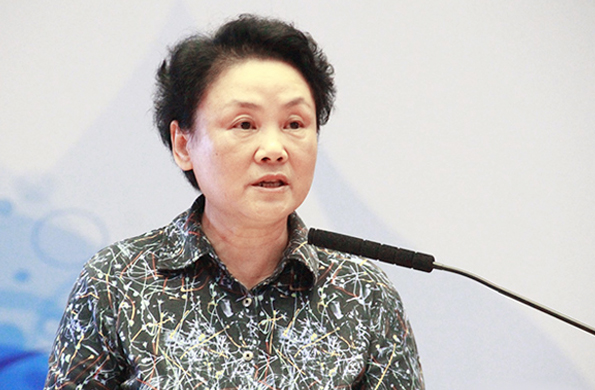Studies of China’s social transition provide solution to social changes
 China’s enormous change in the last seven decades has shaken the world. The world is amazed not only at the massive scale and rapid change of China’s society, but also at the fact that China has experienced multiple historical processes of social transformation in such a short time. The world is astonished by the fact that a super-complex society with a population of over 1.3 billion has maintained maximum steady and orderly operation against the background of rapid global and domestic socio-economic transitions.
China’s enormous change in the last seven decades has shaken the world. The world is amazed not only at the massive scale and rapid change of China’s society, but also at the fact that China has experienced multiple historical processes of social transformation in such a short time. The world is astonished by the fact that a super-complex society with a population of over 1.3 billion has maintained maximum steady and orderly operation against the background of rapid global and domestic socio-economic transitions. Social transition affects social relations, bringing adjustments of existing order and internal momentum and affecting the balance of order and vitality. Despite experiencing a series of long, broad and massive social transitions, Chinese society, under the firm leadership of the CPC, has maintained balanced order and vitality the whole time. This is the real foundation of China’s sociological studies.
The process of social transition and China’s experience with social governance over the last 70 years provide an important paradigm for the progress and development of modern human civilization. Chinese sociologists have conducted investigations by retrospectively analyzing the historical trends and practices of China’s social transition. Sociologists have continued to innovate with their epistemological methods, forming new ways of thinking that conform to the trends of the times and world development as well as to China’s national reality and the resolution to China’s problems. They continue to push forward the development of China’s theoretical methods and modes of sociological thinking. This describes both the potential and the driving force of China’s sociological studies.
After the founding of the PRC, China established a highly centralized planned economic system as well as a set of social regulation systems that suited this economic system, including the work unit system, hukou system and street neighborhood committee system, which helped mobilize and allocate social resources in a balanced way. More importantly, this set of general systems effectively brought social life into an institutional framework and path. It organized social life in a peaceful and orderly way, forming a high-level social identity.
Since reform and opening up, the development of the socialist market economy has provided new institutional support to the unleashing and development of social productive forces. Rapid changes in social life including the emerging of township enterprises, the massive migration of the population, and the rapid development of the individual economy and private economic sector have transcended the traditional framework of the planned economy. From the beginning of the reform and opening up to the early 1990s, the social vigor of Chinese society was unleashed, as the economy developed and social welfare increased. However, the nation lacked sufficient experience in addressing social transitions, and thus the reconstruction of the social order in China has faced the challenges of social differentiation and social inequality since the mid-1990s. During this period of time, the balance of social order and energy became more complicated, and the economic system also displayed an uncoordinated relationship with other social systems.
It is exactly against this backdrop that China made timely efforts to reform its governance system. The Report to the 18th CPC National Congress stated that in order to strengthen social development, China must accelerate social system reform. The Third Plenary Session of the 18th Central Committee of the CPC proposed the development of new forms of social governance. It said that China should improve its patterns of social governance and stimulate the vigor of social organizations, innovating a system that can effectively prevent and resolve social problems and design a sound public security system. The Report to the 19th CPC National Congress proposed establishing a social governance model based on collaboration, participation and common interests.
Chinese society has maintained orderly, steady and harmonious operation at a maximum level while the nation has experienced rapid political and economic transition and development. The Chinese style of social transition and development is not only related to the transformation of its institutional advantages during the process of social integration, but also based on the CPC’s governing idea of people-orientedness.
Chinese society has chosen a path for development over the last 70 years that is unique in human history. Summarizations and academic studies of social transition in China will contribute to the construction of Chinese sociological studies, and they will also provide significant support to the communication and shared development between China and the world.
Li Youmei is president of the Chinese Sociological Association and a professor from Shanghai University.
edited by CHEN ALONG
